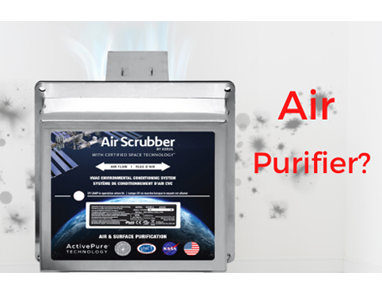Air Purifier Buyers Guide
So, you are considering an Air Purifier?
If you landed on this article, you are exploring whether an air purifier might be beneficial to the indoor air quality in your home. Perhaps you have heard that air inside the average American home can be 10 times more polluted than the air outside the home and are looking for solutions. Someone in your home may have a respiratory or medical condition that warrants your attention to improving indoor air quality.
Not everyone has the “average” home environment; perhaps a local outdoor contaminant (i.e., dust/exhaust from local traffic or odors from local manufacturing) contributes to pollutants entering your home. If these or a myriad of other issues leave you with questions, here are some things to consider.
The Value of Ventilation
First, understand why outdoor air is, generally speaking, cleaner and fresher than indoor air. In one word—volume. Air molecules and all airborne particles are constantly moving and compared to the confines of your home, there is unlimited space outside.
Some particles, like dust, are heavier than air, and many will fall with gravity. Some pollutants are chemically altered by sunlight. Allowing outdoor air into your house is the best method of improving indoor air quality.
In the winter months, opening your home to outdoor ventilation is made difficult by colder weather. After all, you pay good money to keep your house warm, safe and comfortable. However, not every day is cold. There is a benefit to opening a window or door on the occasional warm winter day, letting in fresh, clean air. It doesn’t take long, about thirty minutes, to exchange the indoor air with fresh, outdoor air.
Enhance Your Air Filter
When your home was built, an HVAC system was custom-designed to handle the heating, cooling, and ventilation needs for your home’s square footage. The ventilation portion of the system includes an air filter, typically a paper filter with pleats that trap air particles as they pass through the ductwork. There are several steps that you can take to improve the efficiency of the filter.
- Airborne particles will build upon the filter, so it is essential that you change the air filter regularly. Manufacturers recommend a filter change at least every three months but change it as often as needed.
- All air filters are not alike. A basic filter is good, but air filters designed with smaller openings and more pleats will trap more and smaller particles. Look for a MERV rating on the air filter you purchase—higher MERV numbers indicate smaller openings and better filtration.
- HEPA or high-efficiency particle air filters are the best available for residential HVAC filtration, but not every furnace can handle a HEPA filter. Check with your HVAC professional to determine the best available filter for your system.
- To keep your HVAC system operating cleaning, schedule regular ductwork and component cleaning with your HVAC professional.
Do You Need an Air Purifier?
Implementing outdoor ventilation and improving the air filtration on your HVAC system are significant steps toward improving air quality. How will you know whether an air purifier is needed? Let’s look at how air purifiers function and how they can meet your individual needs.
- While your air filter is designed to filter the air for the whole house, an air purifier is designed to cover a smaller area; from 300 to 1,200 square feet is typical.
- Since an air purifier covers a smaller space, volume is not a problem. The openings in filters can be smaller since you are not pushing all of the air throughout the house as required by your HVAC system. Purifiers can have several layers of filtration; expect three to six layers of various types of filters. Such filters can remove objects as small as viruses from the air.
- Your HVAC filter removes airborne particles. Some air purifiers remove particles and neutralizes them, sanitizing the air. Some purifiers use ionization or activate charcoal to remove odors, something your air filter is not designed to do.
Here are a few things to remember before you purchase an air purifier:
- Research to find the proper size air purifier for the area/room you want to affect, with the options you desire.
- To function properly the purifier will need some space, usually 12” to 14” from the wall, furniture, or other objects. (how will this affect the look of your area)
- Maintenance is required, including cleaning or changing filters and general upkeep.
Or, consider the air purity of your entire home, rather than just one room at a time.
- HVAC air quality products like an Air Scrubber are designed to be installed inside your existing HVAC system. (not taking up space in your rooms)
- They cost-effectively impact the air quality of your entire home. (not just one area or room)
- They require less maintenance and can be checked and maintained during seasonal HVAC system maintenance.
Need help deciding which air purifier or air quality system to buy?
Let us know how we can help with improving your Indoor Air Quality, call AllCool AC & Heating at 281-238-9292 or contact us via email.
